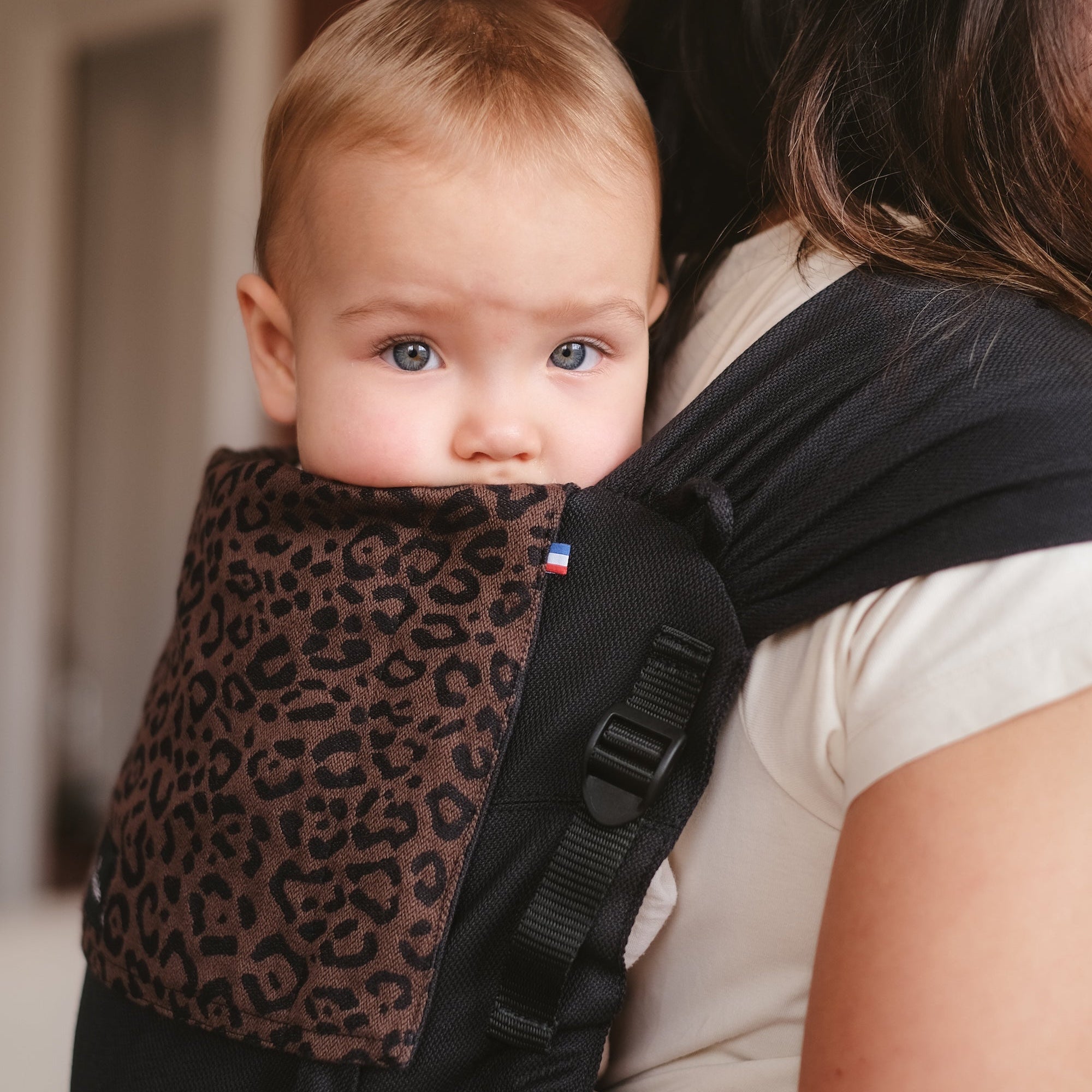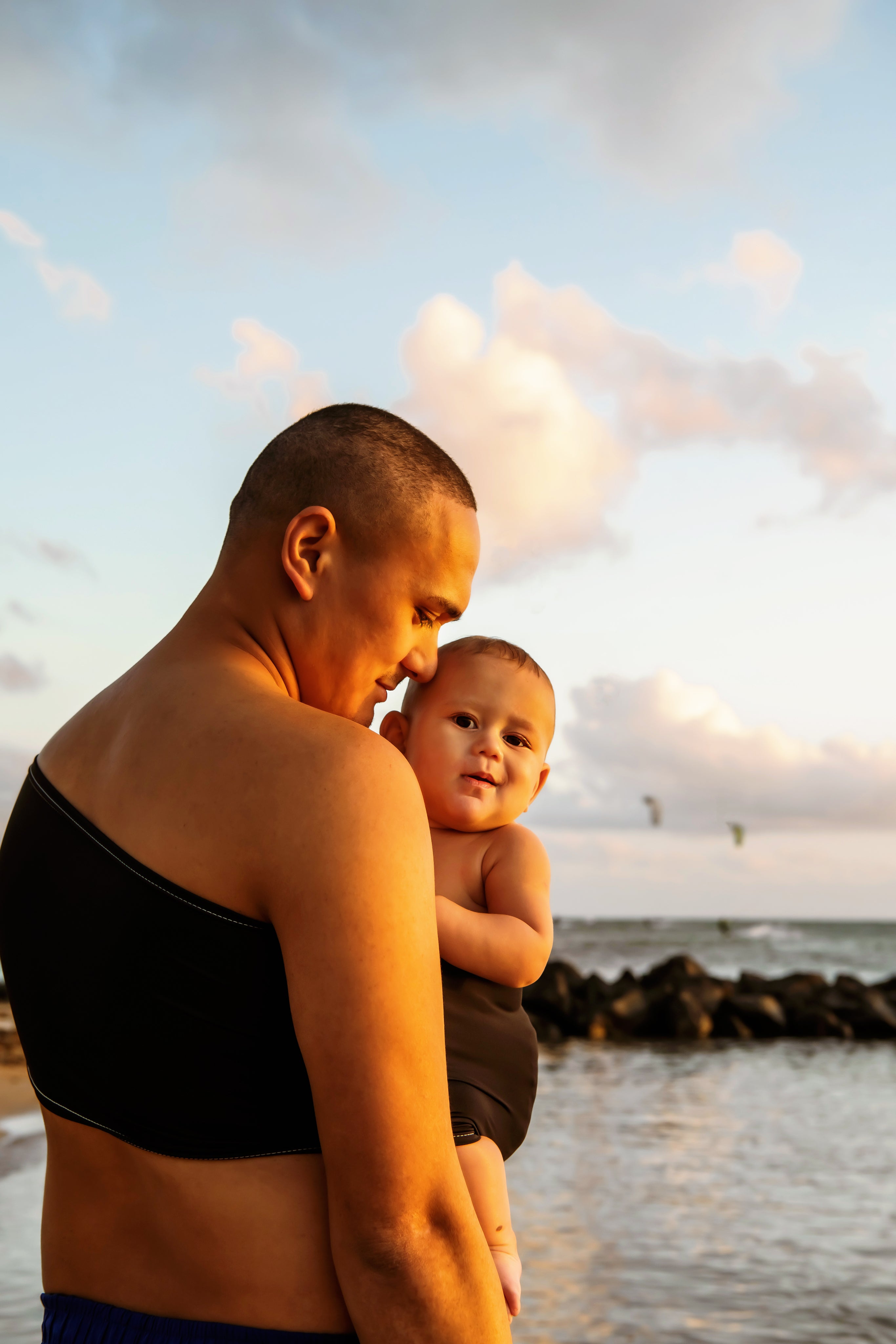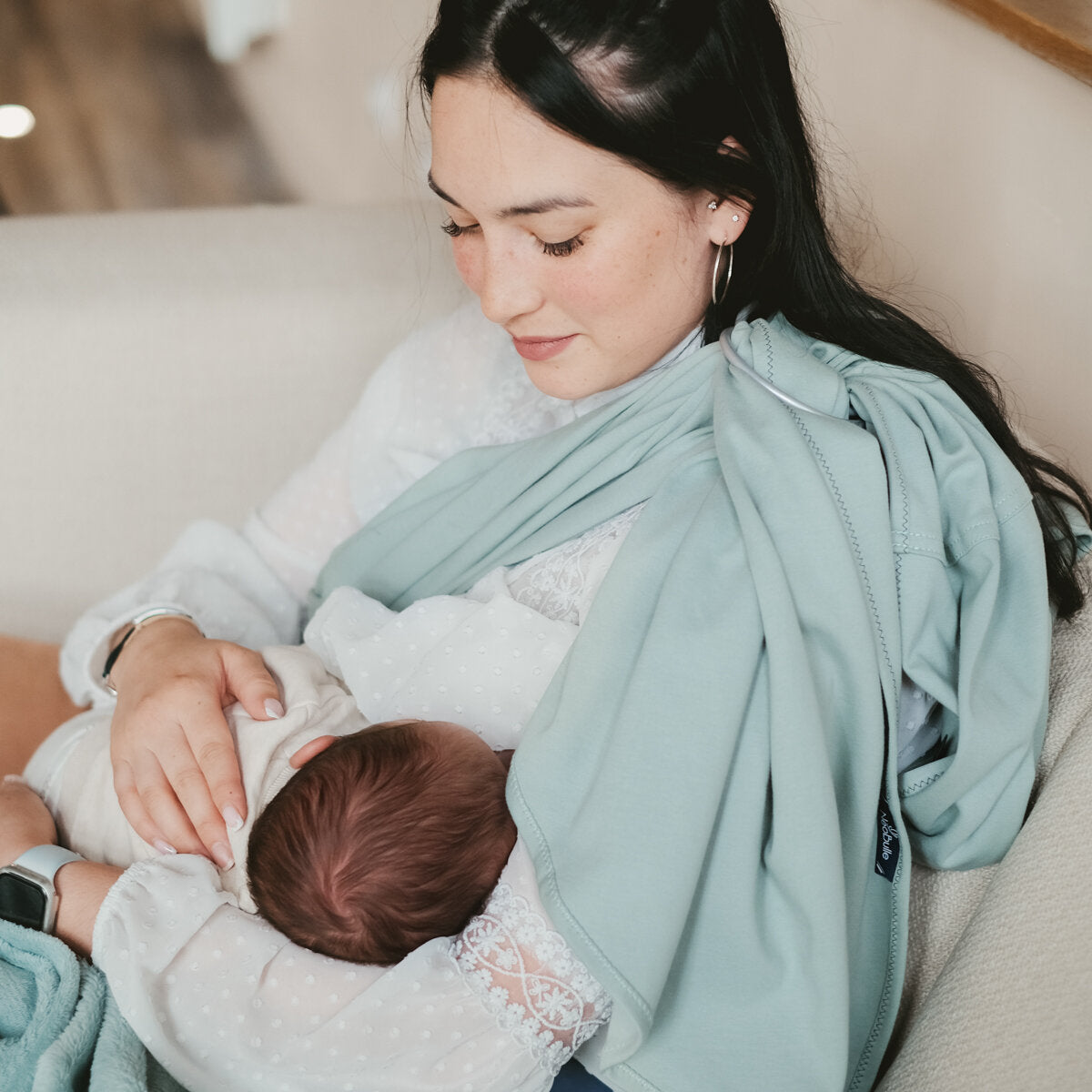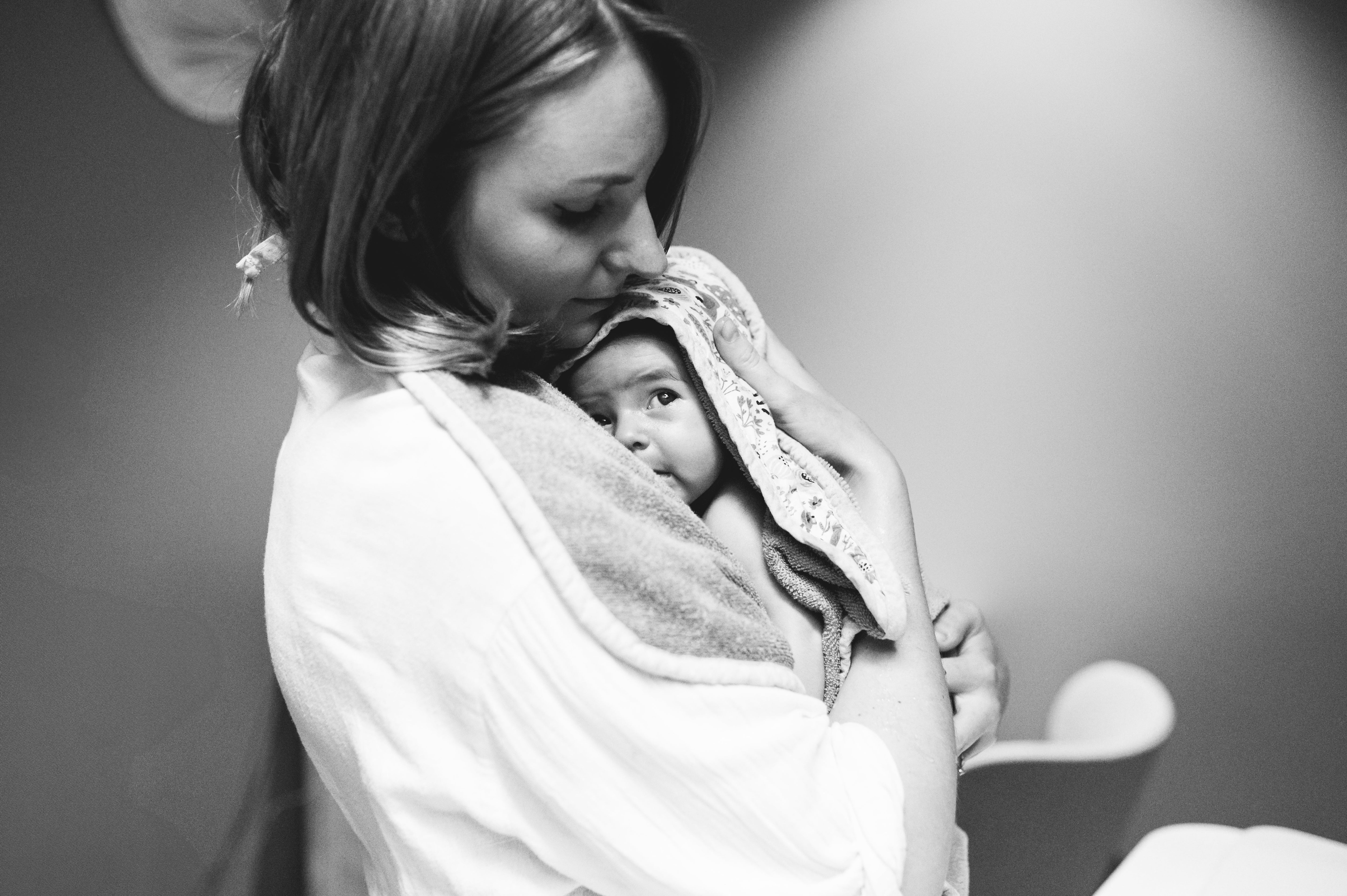Nurse and creator of support associations for moms, carrying workshops, then Néobulle, Séverine has more than one trick up her sleeve. But above all, she has a deep understanding of mothers and a passion for babies!
Let's get to know each other!
I am a trained nurse, born into a family of caregivers with a midwife mother. After my first child, a little girl, I breastfed for 3 months without questioning it. Then, engorgement with a fever occurred.
I visited my doctor, who knew nothing about it, but I didn't realize it. He told me to stop breastfeeding and to pump my milk because I risked poisoning my baby. It was a big mistake.
This marked the end of my breastfeeding because production decreased very quickly. The end of the first episode, with no regrets or questions, because during my nursing studies, breastfeeding was not discussed except to warn us that weaning could be dangerous and lead to risks of autism. Of course, those were still mistakes. However, we had learned how to prepare bottles!
And then, a meeting changed everything. A mom who came to the baby swimmer class with me and was breastfeeding her 9-month-old toddler. That made me question myself. Why was I no longer breastfeeding? Why are we so poorly informed as mothers? Why are we so poorly trained as health professionals?
From that moment, I immersed myself in this fascinating world. I discovered how well-designed nature is, how a harmonious life with a baby brings joy to families. I decided to act to raise awareness in maternity wards.
Did you succeed in getting your message across?
It was difficult. I fought for years. I created a first support association for breastfeeding called "Ref’Lait." Then a second, "Naturellement Parents," to help parents stay calm and serene with their baby and to make them feel supported by guiding them on carrying, parenting, massages, and even singing.
Ref’Lait still involves about fifteen health professionals who continue to support breastfeeding mothers through consultations or visits in maternity rooms. We operate free of charge in the Loire thanks to funding from the Regional Health Agency. I am very proud of that.
After support associations, did Néobulle come along?
Yes, Néobulle came naturally, without ever thinking about creating a business someday. Initially, to further improve support and to leverage the craftsmanship of my region known for its weaving artisans, I developed and had physiologic carrying scarves manufactured just a few steps from my home.
Then, passionate about aromatherapy, the idea of creating 100% natural, organic skincare products that are free of artificial ingredients and, most importantly, effective, came to mind. Always with the goal of better meeting the needs of babies and giving parents confidence.

When did you realize that breastfeeding is important?
About twenty years ago, during my nursing training, I did an internship at a retirement home. I was struck by the elderly women I cared for. As soon as the topic of babies was mentioned, they talked about their breastfeeding experiences. Regrets, satisfactions, pleasures, and unfulfilled desires…
At that moment, I thought that breastfeeding a baby was something very important in a woman’s life, to the point of leaving a mark on her entire life.
How would you describe parenting?
It is the natural way of caring for a baby. Parenting simply means taking care of and responding to their needs. During the first few months, their needs are simple. They are only vital. Sleep, being fed, changed, washed, cared for, and carried to feel secure. And of course, a baby needs attention and love.
It is important to be aware that parenting has existed forever. It has disappeared over the centuries for several reasons.
In the nineteenth century, carrying and breastfeeding were associated with so-called “primitive” populations, while so-called “modern” inventions, like strollers and swings, reduced the essential proximity between a baby and their mother.
The lack of time with women’s emancipation also...
Exactly. Women’s emancipation naturally took more and more time away from mothers to care for their babies. Not to mention the numerous pediatric hypotheses that have contradicted each other over the years: not carrying, feeding at fixed times, not responding to cries…
All these factors, combined with carrying, parenting, and nurturing, gradually disappeared.
Yet these are instinctive and ancestral practices!
This is the famous maternal instinct. If a mother were on a deserted island with her baby, she would take care of her baby, breastfeed without question, hold her constantly against her, and the baby would have everything it needs to be healthy and happy.
But fortunately, instinct takes over! And carrying, breastfeeding, and parenting are coming back to the forefront.
Can you tell us about the benefits of parenting?
Yes, of course! The relationship created through parenting is just as beneficial to the mother as it is to the baby. The baby feels better and cries less, while the mother gains confidence and asserts herself in her new role, whether it's her first baby or a new little one in the family.
Having the feeling of understanding your baby and responding well to their needs gives parents immense confidence and an unparalleled sense of fulfillment. It creates a virtuous circle that promotes
harmonious development of the baby within their family.
Then, you become a parent, and the rest is won!
So, is this also beneficial for future education?
The more the mother understands her baby, the more confident she is in her role as a mother. The same applies to the father. It then becomes easier to gradually set boundaries when the little "caprices" start to appear.
The confidence and serenity that parenting provides are the starting points for simple and natural education.
Séverine wants to emphasize one point…
During the first months of the baby, it is essential to meet all their needs. Whether they ask for cuddles, want to breastfeed 10 times in a row, or desire a comforting cuddle, these are only basic needs essential to their physical, mental, and emotional development.
A baby does not make their parents work or play the comedy, as some still believe.
Carrying helps immensely in daily life and during moments of intense demands. It allows the mother to stay close to her baby continuously while continuing her activities. So, no frustration. Moreover, by being in contact, she secretes hormones that keep her alert and help her instinctively know what to do.
This close proximity with her baby allows the mother to understand him, quickly detect his needs, and learn to anticipate them. As a result, the mother gains confidence, and the baby cries less or not at all.
Should a baby not cry?
The cries of the first months can be completely avoided thanks to carrying and parenting. This gives confidence to the mother and reassures the baby.
The tears are a source of exhaustion and stress for the baby. He no longer sleeps properly, has less appetite, and the mother worries. Crying doesn't serve much purpose; it's the ultimate sign that we failed to recognize his needs earlier.
But it's normal not to manage everything perfectly on the first try! Being a parent is learned little by little, by listening to your inner voice and not just the advice of those around you.
What is your opinion on co-sleeping?
This is a very controversial topic in France. It is discouraged by pediatricians in the first few months to avoid sudden infant death. On the other hand, it is a practice that has lasted through the centuries and is still practiced almost everywhere in the world.
It is important to note one key point. When the baby is in the parents' room, the mother feels more at ease. She sleeps better being close to her baby. Breastfeeding hormones also help develop lighter sleep and keep alert. Recently, it has been recommended to have the baby sleep in the parents' room during the first 6 months.
Regarding co-sleeping, WHO has established safety rules to follow if practiced.
Thank you, Séverine, for all this valuable information!








